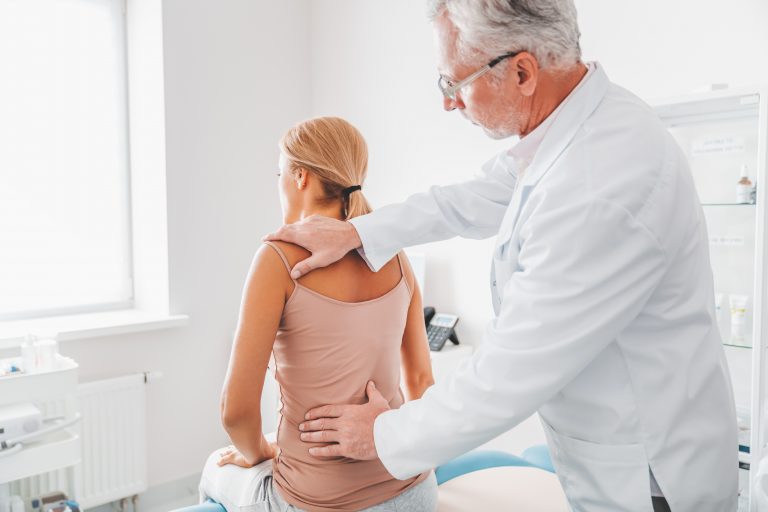What is Canal Stenosis?
Canal stenosis and its underlying causes can produce many uncomfortable symptoms. Many patients with canal stenosis experience pain in the neck or back, traveling pain, numbness, tingling, and weakness in other parts of the body. Depending on the exact location of your stenosis, you may experience these symptoms in the neck, shoulders, arms, lower back, hips, and legs. It’s also possible that you experience no symptoms of canal stenosis depending on its causes and severity.
At BEST Health System, one of our primary goals is to ensure our patients are educated on their condition. This allows them to follow healthier lifestyle habits and have a more successful recovery. If you have been diagnosed with this condition or suspect you may have it, continue reading.
Common Canal Stenosis Causes
When parts of the spine, such as a disc, vertebra, or facet joint become inflamed or shifted out of place, it results in a narrowing, or stenosis, of the spinal canal, which is the central passageway that houses the spinal cord. Several degenerative spinal conditions may also cause spinal stenosis, including herniated discs, spondylolisthesis, osteoarthritis, bone spurs, and degenerative disc disease.
Many of these conditions occur due to the natural aging process, making them more common in patients over 50. As we age, our spinal discs dehydrate and weaken, and they become more likely to shift out of place. Central canal stenosis may also occur at birth. Congenital spinal stenosis may predispose a person to the symptoms of age-related canal stenosis.
Canal Stenosis Treatments
Most doctors will begin treatment with conservative therapies. These treatments allow many patients to find relief from their symptoms within a few weeks or months. The following conservative treatments may either be prescribed individually or in conjunction with one another:
- Pain medications
- Hot and cold compresses
- Weight management
- Low-impact exercises
- Physical therapy
Be sure to consult a doctor before beginning any diet, exercise regimen, or over-the-counter pain medication. You should always be extra cautious to reduce the risk of further complications and drug interactions.
Minimally Invasive Surgery with BEST Health System
While conservative treatments are beneficial to many patients, some may require surgery to treat canal stenosis. If you experience continued pain associated with canal stenosis, we encourage you to look at all your surgical options, including minimally invasive spine surgery. Minimally invasive decompression and stabilization procedures are often clinically appropriate alternatives to open neck or back surgery to treat degenerative spine conditions.
Our board-certified surgeons use a small incision to treat the source of your canal stenosis, without unnecessary muscle tearing and scar tissue. Our procedures have helped thousands of patients find lasting relief from their chronic neck or back pain, setting us apart as the leader in minimally invasive spine surgery. Contact us to find out if our outpatient procedures would be effective for helping you get back to the activities you have been missing out on.
